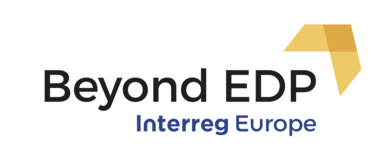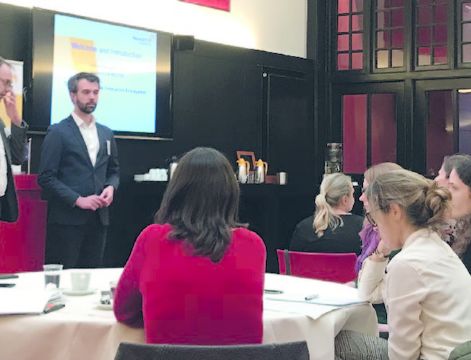The Regional Innovation Agency of Centre-Val de Loire Region (ARITT Centre), lead partner of the Beyond EDP project, organised the launch conference of the Beyond EDP project on 15 June 2016 in Blois, France.
During this event, the project partners presented the main issues which we will tackle in the coming five years. The coordinators of the Beyond EDP project presented the ins and outs of the project by using the analogy of treasure hunting. The success of the RIS3 effectiveness depends on particular on the ability of regional policy makers to mobilise resources and support an Entrepreneurial Discovery Process (EDP) involving the regional ecosystem of innovation. This mobilisation of entrepreneurial forces to implement innovation public policies is at the heart of Beyond EDP project.
Specialist speakers such as Dominique Foray, Professor at École Polytechnique Fédérale de Lausanne and Inmaculada Perianez-Forte, Expert in policy analysis and governance S3 Platform, took part in the conference.
Dominique Foray mentioned several challenges that our project partners would face during the Beyond EDP project:
- managing the EDP during the implementation phase;
- getting from priority’s areas to concretization and to the growth of new specialities;
- involving SMEs, maintaining a relationship between them and the RIS3 as a living document;
- keeping the momentum, potentials and opportunities to allow RIS3 to be embodied in achievements;
- and finally to implement a process of monitoring which takes into account of various time horizon.
S3 assessment on EDP; the lessons learned
Inmaculada Perianez-Forte evoked the lessons learned from the S3 assessment on EDP with many regions that have been peer-reviewed by the S3 platform. She explained that stakeholder’ involvement was a recurrent weakness in the ex-ante conditionality assessment. Many strategies stressed stakeholder´s consultations but they provided little evidence on how the results had been internalised. Moreover, she noticed that some regions had governance/institutional deficiencies and seemed to lack of strategic capabilities, and thus there was still governance deficiencies and a need to clarify the concept and operationalisation of the EDP. She recalled that if the EDP was preferentially used to identify priority of RIS3, the process should also irrigate the other stages of the policy-making process.
She explained that an inclusive governance, which is required for the EDP, demands that the public sector acts as a platform to enable targeted stakeholders’ interaction and policy coordination. This way, policy decisions are not specified beforehand, but evolve through exchanges between government, entrepreneurs and its citizens.
Cooperation as a core element in the concept of smart specialisation strategies
Nicolas Singer, Head of Unit Project & Platform, Interreg Europe Programme recalled that cooperation was a core element in the concept of smart specialisation strategies. Looking beyond regional administrative boundaries is a key success factor of these strategies. Nine projects dedicated to RIS3 have already been approved in the first call of the Interreg Europe programme.
Mr. Marco Pino from the European Commission recalled the context of the development of the concept of smart specialisation. He took stock of RIS3 across Europe. 121 smart specialisation strategies at national or regional levels have charted out their priorities and allocated funds. The governance methods become more inclusive, and many succeeded in breaking the silos between research and industry policies and their stakeholders. Indeed, to identify "smart specialisation priorities", it is often necessary to radically change the governance model for policy development.
He indicated that the European Council is working on conclusions to support the teaming up around RIS3 themes as next step in smart specialisation. A European Parliament Resolution is also on its way, which calls for more interregional cooperation on the basis of the smart specialisation themes. This encouraged the Commission to team up across different Directorates Generals and to provide support to regions and countries that wish to align their RIS3 implementation around related priorities and to complement each other.
Finally he indicated that the different DGs of the EC agreed on the importance of the smart specialisation for development strategies beyond 2020.









